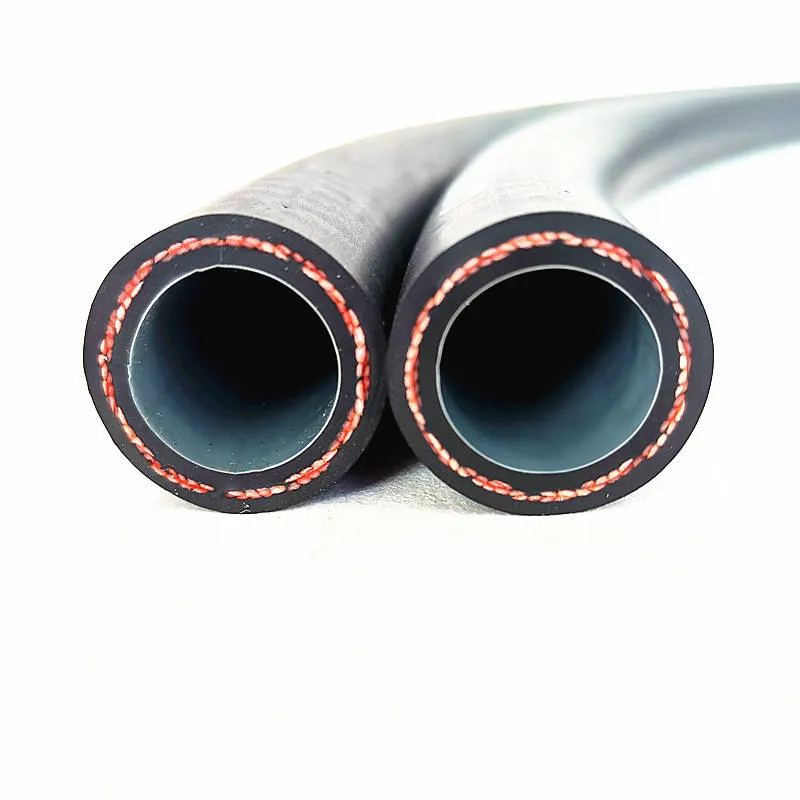Jul . 26, 2024 00:56 Back to list
Durable and Versatile PTFE Flexible Hoses for High-Pressure Applications in Various Industries
The Versatility and Advantages of PTFE Flexible Hoses
Polytetrafluoroethylene (PTFE) flexible hoses are gaining popularity across various industries due to their exceptional properties and versatility. Known more commonly by the trade name Teflon, PTFE is a fluoropolymer that possesses unique characteristics, making it an ideal choice for applications involving corrosive chemicals, high temperatures, and dynamic environments.
Chemical Resistance
One of the most significant advantages of PTFE flexible hoses is their outstanding chemical resistance. These hoses can handle a wide range of aggressive chemicals, including acids, bases, and solvents, without degrading or leaching harmful substances. This makes PTFE hoses particularly valuable in industries such as pharmaceuticals, food processing, and chemical manufacturing, where safety and purity are paramount.
Temperature Tolerance
PTFE also exhibits remarkable thermal stability. These hoses can withstand extreme temperatures ranging from -200°C to +260°C (-328°F to +500°F), making them suitable for both cryogenic applications and high-heat environments. This broad temperature range ensures that PTFE hoses can operate effectively in demanding conditions without losing integrity, flexibility, or performance.
Flexibility and Durability
Despite its strength, PTFE is surprisingly flexible, allowing for easy maneuverability and installation in tight spaces. The flexible nature of PTFE hoses facilitates routing in complex systems without kinking or cracking, which could compromise the system's integrity. Moreover, PTFE hoses are highly durable; they resist abrasion, UV radiation, and oxidation, contributing to a longer service life and reduced maintenance costs over time.
ptfe flexible hose

Low Friction Characteristics
PTFE is noted for its low friction coefficient, which means that fluids can flow through the hoses with minimal resistance. This characteristic helps in enhancing system efficiency by reducing the energy required for pumping and transporting fluids. In applications where fluid velocity is critical, such as in fuel lines or hydraulic systems, using PTFE hoses can contribute significantly to overall performance.
FDA Compliance
In industries where hygiene is critical, such as food and beverage or pharmaceuticals, it is crucial to use materials that comply with regulatory standards. PTFE flexible hoses are often manufactured to meet FDA regulations, ensuring they are safe for direct contact with food and sterile pharmaceuticals. This compliance offers peace of mind to manufacturers and consumers alike regarding product safety and quality.
Customization Capabilities
Another benefit of PTFE flexible hoses is their customization options. They can be manufactured in various sizes, lengths, and diameters to suit specific applications. Additionally, incorporating braiding, such as stainless steel or Kevlar, can enhance pressure ratings and further improve durability. This flexibility in design allows industries to tailor solutions according to their unique operational requirements.
Conclusion
In summary, PTFE flexible hoses are an excellent choice for a wide array of applications due to their chemical resistance, temperature tolerance, flexibility, durability, low friction characteristics, and compliance with health regulations. As industries continue to seek robust, reliable, and efficient solutions for their fluid transfer needs, the demand for PTFE hoses will likely grow. By understanding the benefits and applications of PTFE hoses, companies can make informed decisions that contribute to operational excellence and safety. Whether in a manufacturing plant, laboratory, or even a food processing facility, PTFE flexible hoses are an invaluable component for modern fluid management systems.
-
Best Four Steel Wire Spiral Hose Hydraulic R12 – Durable High-Pressure Hose Manufacturer
NewsJul.08,2025
-
High-Quality 1/4 Hydraulic Hose – Soft, Flexible & Durable Rubber Hoses for Industrial Use
NewsJul.08,2025
-
1 1 2 Inch Hydraulic Flexible Hose - Durable, Reliable, High-Pressure Solutions
NewsJul.07,2025
-
High-Quality 1 2 Rubber Hose - Durable, Flexible Hydraulic Solutions
NewsJul.07,2025
-
Discover SAE Hydraulic Hose Types - High Quality & Durable Hoses from Leading Factory Supplier
NewsJul.06,2025
-
High Pressure Wire Hydraulic Rubber Hose Supplier Durable & Reliable 1SN Hose Solutions
NewsJul.06,2025
